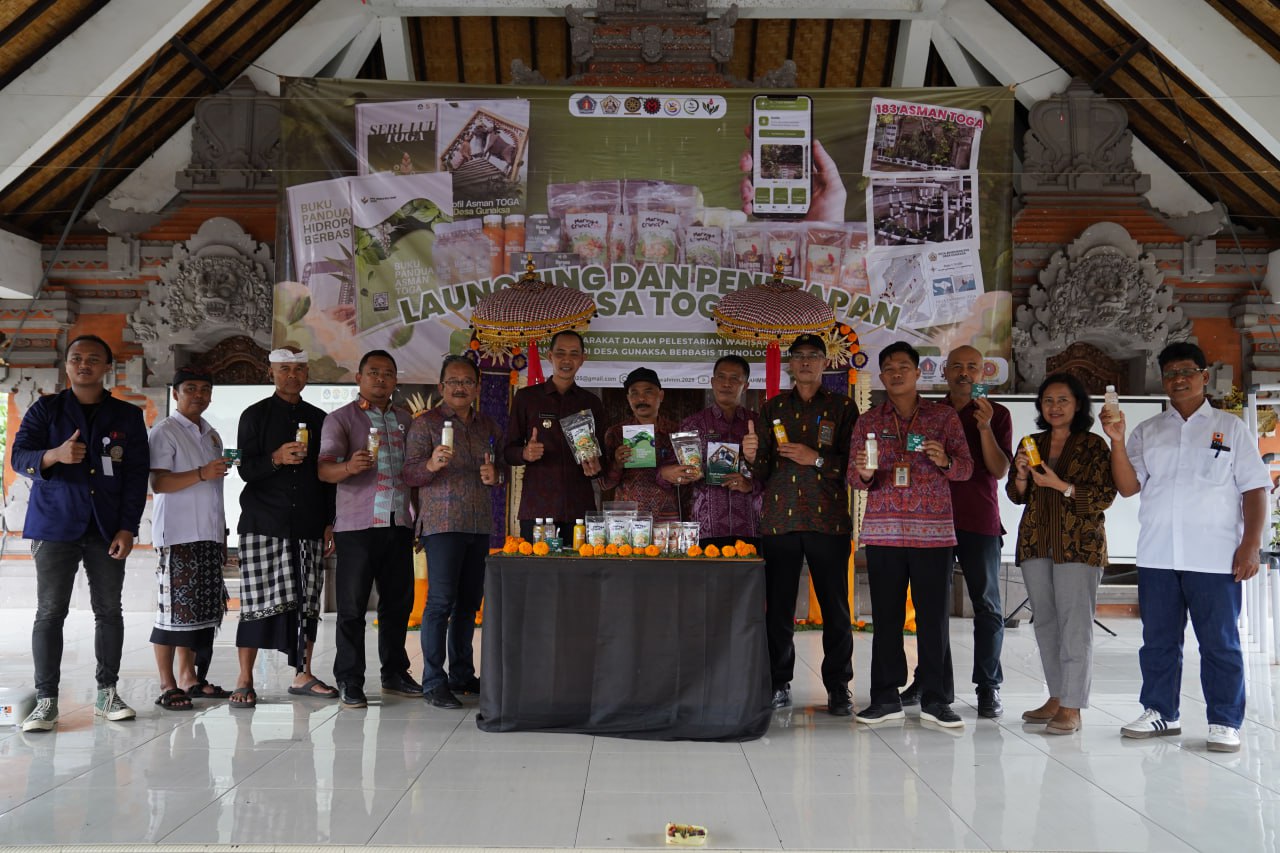Impactful: Through the PPK Ormawa Program of the Udayana University Mechanical Engineering Student Association, Gunaksa Village Officially Launched as an Herbal Plant Village (Desa TOGA)
Gunaksa Village Officially Launched as Herbal Plant Village (Desa TOGA) Through Udayana Mechanical Engineering Student Association’s PPK Ormawa Program
Denpasar – Gunaksa Village was officially launched as a Family Herbal Plant Village (Desa Tanaman Obat Keluarga or TOGA) as part of efforts to develop traditional medicinal plants and revitalize village land. The event took place on Tuesday, September 30, 2025, at Banjar Nyamping Hall, Gunaksa Village, Dawan District, Klungkung Regency.
This program marks an important milestone in preserving ancestral heritage and strengthening community independence in herbal-based health. The launch of Gunaksa Village as a TOGA village was not merely a ceremonial event but the result of a collaboration between the village government and academic institutions. Through the PPK-ORMAWA Program, the Mechanical Engineering Student Association of the Faculty of Engineering at Udayana University actively participates in community empowerment via the Seri-Luh-Toga program (Serius Lestarikan Tanaman Obat Keluarga – Seriously Preserving Family Herbal Plants) and the Asman TOGA Program (Asuhan Mandiri TOGA – Independent Herbal Care), focusing on preserving ancestral heritage.
The Chairperson of the PPK Ormawa Committee, I Ketut Rama Saputra, reported that this activity aims to strengthen student roles in supporting community empowerment through the development of Gunaksa as a TOGA village and to foster community independence in herbal-based health. The program development included socialization, training, and community mentoring in managing herbal plants, along with signing cooperation agreements with various stakeholders.
With the development of Gunaksa as a TOGA village, they hope the community will enhance their knowledge and skills in utilizing family herbal plants, thereby creating a TOGA village that contributes to community health and food security. “This program also aims to build synergy between the government, academics, professional organizations, businesses, and the community in developing a resilient village,” he said.
Meanwhile, Vice Rector for Student Affairs, Prof. Dr. Gusti Ngurah Alit Susanta Wirya, S.P., M.Agr, stated that Gunaksa Village was chosen as the development site due to the community’s positive response and longstanding cooperation with Udayana University. “This program is excellent in supporting family health and has the potential to boost the local economy. The program will continue beyond this initial phase,” said Prof. Alit.
For sustainability, Udayana University entrusts the program to the village and traditional leaders for guidance and mentoring. If needed, technology for product processing will be provided. This is the fifth time the program is held and has received appreciation from the Klungkung Regency Government.
Deputy Regent of Klungkung, Tjokorda Gde Surya Putra, representing the Regent, appreciated the Mechanical Engineering Student Association’s efforts in community empowerment. “Thank you and appreciation to the students for strengthening capacity building in Gunaksa Village regarding herbal plants,” said Deputy Regent Tjok Surya.
He affirmed that this initiative supports and strengthens TOGA as a heritage with many benefits for the community. Particularly, the application developed by students will increase awareness and serve as education about the benefits of family herbal plants. He hopes Gunaksa Village will become a potential area that utilizes yards and unused land for planting TOGA. “Hopefully, it can develop into an attraction because herbal medicine could become a future tourism sector,” he added.
In a separate interview, Head of UPKP Unud, Dr. Ir. Wayan Nata Septiadi, ST., MT, who also serves as a supervising lecturer, explained that this program originates from the Ministry to accelerate SDGs implementation at the village level, packaged as a student volunteer initiative. The program aligns with several SDGs, including food security, community welfare, and increased knowledge and economic empowerment.
Regarding Asman TOGA, students have formed 183 groups, exceeding the Ministry’s requirement of 10% of households in Gunaksa Village. From a total of 1,504 households, 183 now have Asman TOGA groups with educational herbal gardens (Taman TOGA) marked with informative signage. Udayana students have also created a Biodiversity Map both conventionally and through an app to facilitate tracking the distribution of herbal plants.
Concerning land revitalization, approximately 1.7 hectares of underutilized land in Gunaksa has been planted with TOGA plants such as red ginger, lemongrass, aloe vera, and other species.





